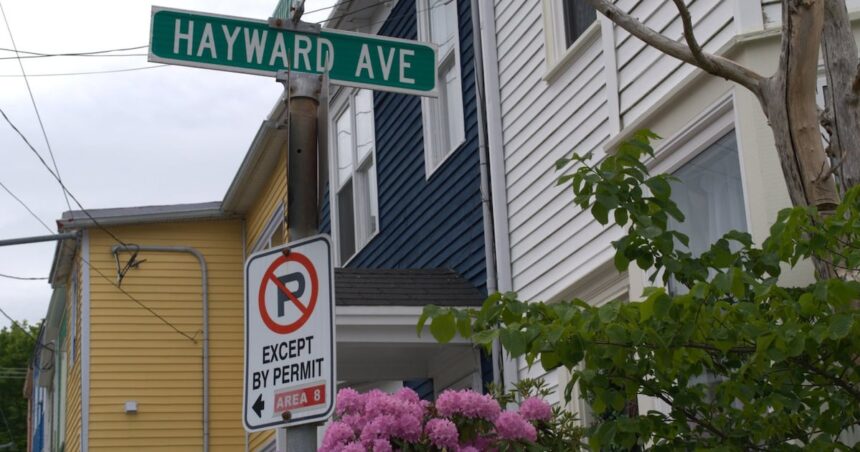In a move that has stirred both support and controversy across Newfoundland’s capital, St. John’s city council voted last week to end the practice of naming streets after individuals. The decision marks a significant shift in how the historic coastal city will commemorate its past while navigating an increasingly complex relationship with history.
“We’re not erasing history,” explained Councillor Jamie Korab during Monday’s council meeting. “We’re being thoughtful about how we represent our community values going forward.” The 6-3 vote approved recommendations from the city’s naming committee, which had been reviewing practices after several contentious debates about historical figures whose legacies have been reassessed in recent years.
The new policy directs that streets, parks, and municipal buildings will instead draw inspiration from local geography, flora and fauna, or cultural traditions that reflect the city’s rich heritage without tying public spaces to potentially problematic individuals.
Walking along Duckworth Street on a misty morning after the decision, local resident Margaret Parsons, 64, expressed mixed feelings that seemed to capture the community’s divided response. “My grandfather’s name is on a little lane in the Battery,” she said. “It meant something to our family. But I understand why they’re doing this. Times change, and what we know about people changes too.”
The decision follows similar moves in communities across Canada grappling with how to handle public spaces named after historical figures whose actions or beliefs are now viewed as harmful or contrary to modern values. Last year, the City of Vancouver revised its naming policies after contentious debates about several landmarks, while Toronto has developed extensive guidelines for reviewing existing names.
According to documents from the St. John’s naming committee, the policy change wasn’t prompted by any single controversy but rather by a desire to establish a “forward-looking framework” that focuses on inclusivity and avoids potential conflicts. The committee spent eight months consulting with historians, Indigenous leaders, and community organizations before bringing recommendations to council.
Deputy Mayor Sheilagh O’Leary, who supported the change, pointed to practical benefits beyond avoiding controversy. “When we name streets after people, eventually we run into problems—either their legacy becomes complicated, or the family disagrees with how the name is being used. This approach gives us more flexibility and connects people to place in a different way.”
Critics, however, see the policy as an overcorrection. “We’re throwing away a traditional way of honoring contributions to our community,” said Councillor Maggie Burton, who voted against the change. “Instead of developing better criteria for selecting worthy individuals, we’re eliminating the possibility altogether.”
The St. John’s Board of Trade has expressed concerns about potential impacts on tourism, suggesting that personal stories attached to street names often create meaningful connections for visitors exploring the city’s heritage. “People remember stories about people,” noted Chamber President AnnMarie Boudreau. “Names like Cabot, Gilbert, and Bannerman carry histories that tourists actively seek out.”
Census data indicates St. John’s has approximately 1,200 named streets, with roughly 40% bearing personal names. The policy won’t affect existing street names but applies to all future developments and any renamed streets.
Memorial University historian Robert Sweeny suggests the change reflects broader social shifts. “Communities across Canada are reconsidering how public space reflects collective values,” he explained. “St. John’s is unusual in making such a definitive break, but they’re part of a wider conversation about representation and historical reckoning.”
For Indigenous communities, the change represents an acknowledgment of longstanding concerns. Miawpukek First Nation Chief Mi’sel Joe, who participated in consultations, called it “a small step toward more thoughtful representation” in public spaces. “For too long, street names celebrated only one version of history. This opens possibilities for more inclusive storytelling about this place.”
The city plans to introduce a new commemorative program that will honor significant local figures through other means, including plaques, digital archives, and community events. Mayor Danny Breen emphasized this aspect when announcing the change: “We’re not saying people’s contributions don’t matter. We’re finding more dynamic, less permanent ways to celebrate them.”
As fog rolled in from the harbor, obscuring the street signs along Water Street, the city’s oldest thoroughfare, local tour guide James Murphy contemplated how he’ll adjust his walking tours. “The stories of people will still be here,” he reflected. “Maybe this makes us work harder to remember them, to tell their full stories—not just the sanitized versions that fit on a street sign.”
The policy takes effect immediately for all new developments, with implementation guidelines expected to be finalized by September.






